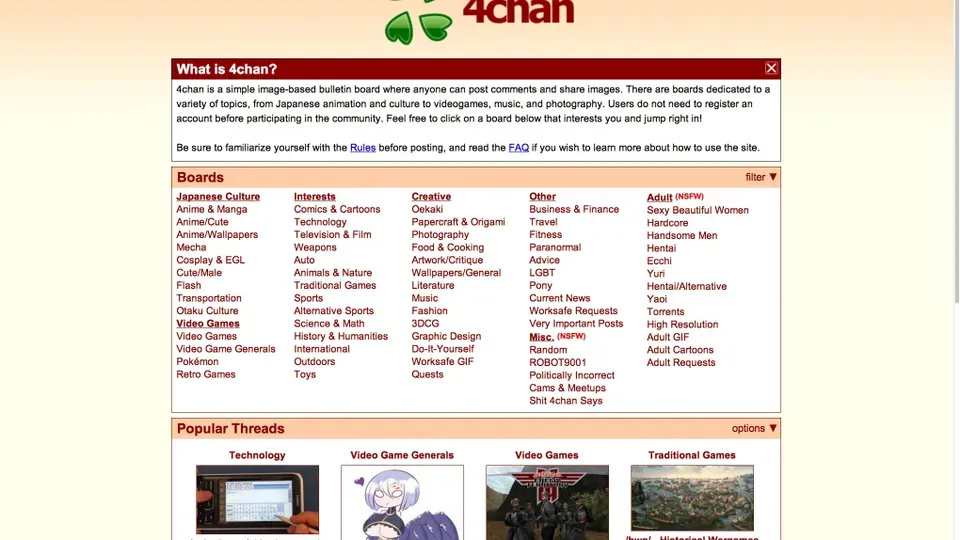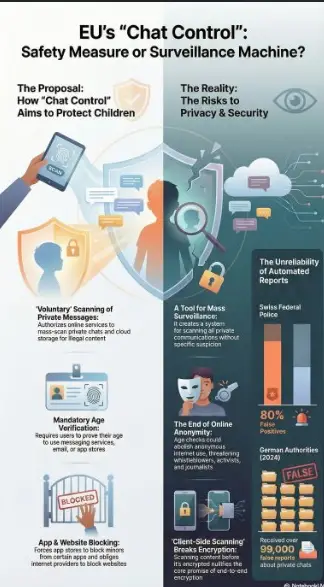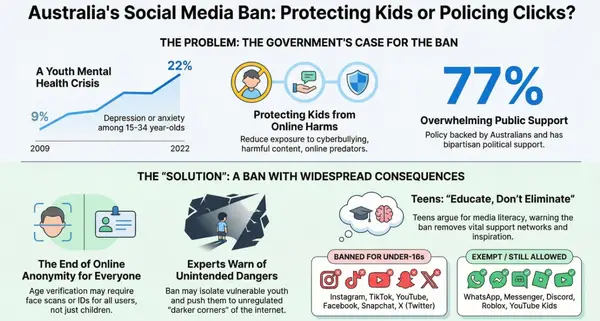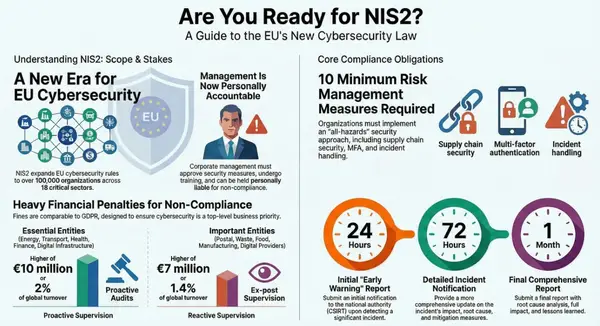When Domestic Law Goes Global: The Online Safety Act's Constitutional Collision with American Free Speech

UK Regulation Sparks Federal Lawsuit as 4chan Refuses Compliance, Calling Ofcom Enforcement "Illegal Campaign of Harassment"
Bottom Line Up Front: The UK's Online Safety Act, promised as domestic legislation to protect children online, has triggered an unprecedented constitutional showdown in US federal courts. American platforms including 4chan are refusing to comply with Ofcom demands, arguing that UK regulators are conducting extraterritorial censorship that violates First Amendment protections. With the Trump administration watching developments with "great interest and concern" and warning against foreign interference in American free speech, this legal battle could reshape how nations enforce digital laws across borders.
The Domestic Promise That Became Global Overreach
When the UK Parliament passed the Online Safety Act in 2023, it was framed as a necessary domestic measure to protect British children from harmful online content. The legislation requires platforms to implement systems detecting and removing illegal content, conduct risk assessments, and institute age verification measures for adult content.
After two years of rule-writing, the Act's enforcement phase began in earnest throughout 2025. Illegal content duties took effect March 17, 2025, followed by child safety requirements on July 25, 2025. The law empowers Ofcom, the UK's communications regulator, to impose fines up to £18 million or 10% of global revenue—whichever is greater—for non-compliance.
But what was sold as child protection has evolved into something far more expansive. The Act's extraterritorial reach extends to any platform "capable of being used in the UK by individuals" where there are "reasonable grounds to believe that there is a material risk of significant harm to individuals in the UK."
This broad jurisdictional claim means US-based companies with no physical presence in Britain can face UK regulatory enforcement simply because British citizens can access their services.
4chan: The First Test Case
On June 10, 2025, Ofcom opened a formal investigation into 4chan, the Delaware-incorporated imageboard with no UK establishment. The investigation centered on three alleged violations:
- Failing to respond to statutory information requests
- Failing to keep risk assessment records
- Non-compliance with duties under the Online Safety Act
By August 13, 2025, Ofcom issued a provisional notice of contravention, announcing its intention to impose a £20,000 penalty plus daily fines of £100 for continuing non-compliance, potentially lasting up to 60 days.
4chan's response was immediate and defiant.
"Ofcom's notices create no legal obligations in the United States," declared Preston Byrne, managing partner of Byrne & Storm P.C., the law firm representing 4chan. "4chan has broken no laws in the United States—my client will not pay any penalty."
Byrne characterized Ofcom's enforcement efforts as an "illegal campaign of harassment" against US tech firms, arguing that the regulator's demands amount to foreign interference with constitutionally protected American speech.

The Federal Lawsuit: Constitutional Principles at Stake
On August 27, 2025, 4chan and Kiwi Farms filed a groundbreaking lawsuit in the US District Court for the District of Columbia against Ofcom. The complaint makes several constitutional arguments that strike at the heart of international internet governance:
First Amendment Violations
The platforms argue that Ofcom's threats and fines "constitute foreign judgments that would restrict speech under U.S. law." The lawsuit maintains that their editorial decisions about what content to host are protected by the First Amendment, and that no foreign regulator can compel censorship of constitutionally protected American speech.
"American citizens do not surrender our constitutional rights just because Ofcom sends us an e-mail," Byrne stated. "In the face of these foreign demands, our clients have bravely chosen to assert their constitutional rights."
Ronald Coleman, representing Kiwi Farms, added: "With this action, our clients defend the free speech rights of every American. Foreign interference of the type seen in this case is precisely what the First Amendment is meant to protect against."
Jurisdictional Challenges
The lawsuit argues that Ofcom lacks personal jurisdiction over wholly US-based companies operating under Delaware law with no UK establishment. Furthermore, the platforms contend that Ofcom's communications were not properly served under the US-UK Mutual Legal Assistance Treaty (MLAT).
Under international law principles, service of legal process by a foreign government on US entities typically must go through the MLAT framework, passing through both the US State Department and Department of Justice. The lawsuit alleges Ofcom bypassed these requirements entirely, sending enforcement notices directly to US companies via email.
Public Policy Defense
The complaint invokes long-standing US legal doctrine that American courts will not enforce foreign "penal fines or censorship codes." This principle reflects the fundamental policy that regulatory penalties imposed by foreign governments for conduct legal under US law are unenforceable in American courts.
The Trump Administration Weighs In
The timing of this legal battle coincides with heightened tensions between the Trump administration and foreign regulatory regimes perceived as threatening American tech companies and free speech rights.
State Department Monitoring
"President Trump has made it clear that free speech is one of our most cherished freedoms as Americans," a senior US State Department official told The Telegraph. "Accordingly, we have taken decisive action against foreign actors who have engaged in extraterritorial censorship affecting our companies and fellow citizens."
The State Department disclosed it is monitoring the Online Safety Act with "great interest and concern," having sent US officials to London to meet with Foreign Office representatives and challenge Ofcom directly over the Act's implementation.
Presidential Warnings
During his July 2025 visit to the UK, President Trump warned Prime Minister Keir Starmer directly about censorship concerns. Speaking at his Turnberry golf course in Scotland, Trump made his position clear:
"I only say good things about him and his country, so if you censor me, you're making a mistake."
The exchange highlighted the growing diplomatic tension over digital regulation, with Trump defending Truth Social and other US platforms from what he characterized as foreign censorship efforts.
Vice President JD Vance has been even more vocal, calling the UK's regulatory approach a "very dark path" of online censorship and citing it as evidence that "free speech in Britain and across Europe [is] in retreat."
FTC Intervention
Perhaps most significantly, Federal Trade Commission Chairman Andrew Ferguson sent formal letters to major technology companies—including Alphabet, Meta, Amazon, Microsoft, and Apple—warning that complying with foreign censorship requirements could itself violate US law.
The letters specifically cited the UK's Online Safety Act and the EU's Digital Services Act as examples of foreign statutes that risk forcing US firms to curtail Americans' speech and security protections.
This unprecedented warning from a US regulatory agency signals that American tech companies now face a potential legal minefield: comply with foreign regulations and potentially violate US law, or refuse compliance and face massive foreign penalties.
Enforcement Challenges: What Happens When 4chan Refuses to Pay?
Even if 4chan successfully resists Ofcom's fine in US courts—which legal experts consider likely given First Amendment protections and jurisdictional defenses—the UK regulator maintains it has alternative enforcement mechanisms.
Business Disruption Measures
Ofcom can petition English courts for "business disruption orders" that would:
- Remove 4chan from search engine results displayed to UK users
- Block payment processing for UK transactions
- Require UK internet service providers to block access to the platform entirely
Emma Drake, partner at law firm Bird and Bird, explained: "Enforcing against an offshore provider is tricky. Ofcom can instead ask a court to order other services to disrupt a provider's UK business, such as requiring a service's removal from search results or blocking of UK payments."
If direct enforcement proves impossible and disruption measures insufficient, Ofcom's nuclear option is mandating that all UK ISPs block access to non-compliant platforms.
The ISP Block Precedent
Some platforms have already chosen to geo-block UK users rather than comply with the Act's requirements. According to Ofcom, four file-sharing services and one suicide forum have implemented blocking measures that restrict UK-based access.
However, these blocks must be "genuine and not circumventable." When Ofcom discovered that one suicide forum included instructions on its homepage teaching UK users how to bypass the geo-block with VPNs, the regulator intervened, forcing removal of the circumvention guidance.
This cat-and-mouse dynamic highlights the practical limitations of enforcing territorial regulations on the borderless internet. Within days of age verification requirements taking effect, VPN applications became the most downloaded apps on Apple's UK App Store, and a petition calling for repeal of the Online Safety Act gathered over 450,000 signatures.
The Broader Pattern: Digital Sovereignty vs. Free Speech
The 4chan case represents the culmination of growing tensions between national regulatory ambitions and the reality of a global, decentralized internet.
Similar Conflicts Worldwide
The Online Safety Act showdown echoes broader conflicts between US constitutional principles and foreign regulatory frameworks:
European Union's Digital Services Act: A July 2025 House Judiciary Committee report documented how the DSA pressures US tech companies to enforce censorship globally, not just in Europe. Republican lawmakers characterized the DSA as "embedding censorship into the legal DNA of Western democracies."
Australian eSafety Commissioner: Australia's regulator has issued removal notices to X (formerly Twitter) demanding censorship of content available globally, not just to Australian users, sparking similar free speech conflicts.
Germany's Network Enforcement Act: German authorities have conducted police raids on citizens for social media posts, memes, and retweets, with one 64-year-old pensioner fined €825 for sharing a political meme—a case that has alarmed international observers.
These parallel developments suggest a coordinated global trend toward what critics characterize as authoritarian internet control masquerading as "safety" measures.
Competing Visions of Internet Governance
At the heart of these conflicts lie fundamentally incompatible visions:
The European Model: Platforms bear legal responsibility for user-generated content and must proactively police speech according to government-defined standards of acceptability. Failure to censor results in massive penalties.
The American Model: Platforms enjoy Section 230 protections that shield them from liability for user content, reflecting the constitutional principle that the remedy for harmful speech is more speech, not government-mandated censorship.
The lawsuit's complaint explicitly addresses this philosophical divide: "Foreign governments, particularly those in Europe, which have not managed to build technology sectors of their own have, for the past half-decade or more, sought to control the American Internet, and hobble American competitiveness, through a range of legislative and nonlegislative initiatives."
The Double-Edged Sword of Age Verification
While the Online Safety Act frames age verification as child protection, its implementation has revealed far-reaching implications for privacy, anonymity, and free expression.
Surveillance Infrastructure
To comply with age verification requirements, platforms must implement systems that definitively identify users' ages through:
- Government-issued photo ID verification
- Credit card authentication
- Facial recognition and age estimation technology
- Third-party age verification services with access to identity databases
Critics argue this creates a comprehensive surveillance infrastructure that connects online presence with real-world identity, effectively eliminating anonymous speech—a cornerstone of free expression online and whistleblower protection.
The Electronic Frontier Foundation condemned the Online Safety Act as "a massive threat to online privacy, security, and speech," warning that it "will lead to a much more censored, locked-down internet for British users."
Mission Creep in Practice
The Act's reach has extended far beyond pornography websites to encompass:
- Gaming platforms (Xbox now requires age verification)
- Music streaming services (Spotify age-gates explicit lyrics)
- Message boards discussing sensitive health topics
- Reddit communities and Discord servers
- Gaming PC software (reports of users unable to adjust NVIDIA graphics card settings without age verification)
Index on Censorship warns that age verification "opens up too many avenues for increased surveillance and monitoring, all of which fosters an environment of self-censorship, stifles open dialogue and erodes the right to free expression and access to information."
What This Means for Global Tech Companies
US technology companies now find themselves caught between incompatible legal regimes with severe penalties on both sides.
The Compliance Dilemma
A company like X (formerly Twitter) faces an impossible choice:
Option A: Comply with foreign regulations
- Face potential FTC enforcement action for curtailing Americans' speech
- Implement costly, platform-wide changes affecting global operations
- Undermine privacy and security protections for all users
- Set precedent encouraging other nations to impose similar demands
Option B: Refuse compliance
- Face up to 10% of global revenue in fines from foreign regulators
- Risk business disruption measures (payment blocking, search delisting)
- Potential loss of access to major markets (UK, EU)
- Possible ISP-level blocking of the entire platform
The Geoblocking Alternative
Some platforms have attempted to thread this needle through geoblocking—implementing different feature sets or restricting access for users in specific jurisdictions.
However, this approach faces significant challenges:
Technical Complexity: Maintaining separate code bases and feature sets for different jurisdictions dramatically increases operational costs and complexity.
Circumvention: VPN usage surged in the UK following the Act's enforcement, allowing users to easily bypass geographic restrictions.
Enforcement Scrutiny: Regulators like Ofcom actively investigate whether geoblocking measures are "genuine" and crack down on platforms that provide circumvention instructions.
User Experience: Fragmenting the internet into national silos fundamentally undermines the technology's promise of borderless communication.
Congressional Response: Bipartisan Alarm
The Online Safety Act's extraterritorial enforcement has generated rare bipartisan concern among US lawmakers.
Republican Representative Jim Jordan, Chairman of the House Judiciary Committee, tweeted: "UK REGULATORS THREATEN AMERICAN COMPANIES WITH CENSORSHIP." He expressed particular alarm about Ofcom pressuring Rumble, a platform with minimal UK user base, to comply with British speech restrictions.
Representatives Kevin Kiley (R-Calif.) and Scott Fitzgerald (R-Wis.) have joined the criticism, noting the "chilling effect" of foreign regulators attempting to impose their more restrictive speech standards on American platforms.
A bipartisan Congressional delegation recently visited London specifically to air concerns about the Online Safety Act with their British counterparts, demonstrating that this issue transcends typical partisan divides when American sovereignty and constitutional rights are at stake.
The Ironic Parallel: Similar US Proposals
Even as American politicians condemn the UK's approach, several pending US legislative proposals would create remarkably similar outcomes.
The Kids Online Safety Act (KOSA)
KOSA would impose a "duty of care" requiring platforms to "exercise reasonable care in the creation and implementation of any design feature to prevent and mitigate" various harms to minors.
Like the Online Safety Act, KOSA's language is vague and expansive, covering harms related to mental health, sexual exploitation, substance abuse, and "promotion of inherently dangerous acts." Critics warn this vague standard would incentivize platforms to censor newsworthy or educational content until users verify their age—precisely the outcome US officials are criticizing in the UK context.
The Kids Off Social Media Act
This proposal would prohibit platforms from allowing users under 13 if they have "knowledge fairly implied on the basis of objective circumstances" that the user is a minor.
Rather than face costly litigation every time they fail to identify underage users, platforms would inevitably implement mandatory age verification—the same surveillance infrastructure currently being condemned when imposed by foreign regulators.
State-Level Legislation
Multiple US states have enacted age verification requirements for adult content, with Texas successfully defending its law before the US Supreme Court. These state laws create similar compliance challenges and privacy concerns, though their constitutional standing differs from foreign regulatory demands.
The R Street Institute notes: "With such vagueness attached to a pursuant list of harms, it's overwhelmingly likely that, if enacted, KOSA would lead to similar censorship of any distressing—even if newsworthy or informational—content by platforms until users verify their age."
Legal Precedents and Likely Outcomes
The 4chan lawsuit presents novel legal questions at the intersection of international law, constitutional rights, and internet governance.
Strong Jurisdictional Defenses
Legal experts consider 4chan's jurisdictional arguments compelling. Terry Green, partner at law firm Katten Muchin Rosenman UK, called the suit "a critical moment" that "has the risk of being replicated across the United States and even globally."
US courts have historically been reluctant to enforce foreign regulatory penalties, particularly when doing so would contradict fundamental American legal principles. The doctrine against enforcing foreign penal fines is well-established, and no US court has ever compelled compliance with foreign censorship demands that would violate the First Amendment.
The MLAT Requirement
If US courts determine that Ofcom's notices were improperly served without going through the Mutual Legal Assistance Treaty framework, the entire enforcement action could be invalidated on procedural grounds alone, without even reaching the constitutional questions.
First Amendment Supremacy
Even if Ofcom had properly served its demands, US courts are extremely unlikely to compel censorship of constitutionally protected speech at the behest of a foreign government. The First Amendment represents one of the most jealously guarded rights in American jurisprudence, and courts have consistently struck down efforts to restrict protected speech—even when those efforts come from the US government itself.
Foreign demands for censorship face an even higher bar.
The Diplomatic Dimension
Beyond the legal battle, this dispute has evolved into a significant diplomatic tension between traditional allies.
Trade Negotiations
British Culture Secretary Lisa Nandy has stated the UK will not modify the Online Safety Act as part of trade negotiations with the Trump administration, setting up a potential collision course.
Marc Andreessen, the venture capitalist and Meta board member with close ties to Trump, reportedly called UK leaders to complain about the law, though his spokesperson denied the Financial Times report.
Before his fallout with Trump, Elon Musk was understood to be pushing the president to raise curbs on social media regulation in trade talks with the UK, characterizing Britain's online safety laws as "suppression of the people."
Human Rights Concerns
In an extraordinary development, the US State Department's annual human rights report criticized the UK for "serious restrictions" on free speech—a designation typically reserved for authoritarian regimes.
This represents a dramatic shift in how the United States views its closest ally's approach to speech regulation, suggesting that the Online Safety Act has crossed a threshold that American officials consider incompatible with democratic norms.
The "Special Relationship" at Risk
Some observers warn that Ofcom's continued enforcement against US platforms could seriously damage US-UK relations. If the dispute escalates to the point where major American platforms like X become inaccessible in Britain due to regulatory conflicts, it would represent an unprecedented fracture in the transatlantic alliance.
As one analysis notes: "A firm like X already has a close relationship with the Trump administration and an owner, Elon Musk, interested in free speech. Should it refuse to comply, Ofcom would face having to follow through on its threats and eventually the world's most influential social media platform could end up inaccessible in the UK. Some deranged censorship enthusiasts might see that as a win, but it would be a dark day for the birthplace of parliamentary democracy—and a major spanner in the works of the special relationship."
What's Next: Key Developments to Watch
The coming months will likely determine whether national regulators can impose their standards on the global internet, or whether the borderless nature of digital communication will resist territorial control.
Legal Timeline
- Fall 2025: US District Court will hear arguments on jurisdiction and whether to grant 4chan's requested injunctions
- Late 2025/Early 2026: Ofcom's final enforcement decision on the 4chan investigation
- 2026+: Potential appeals to the DC Circuit Court and possibly the US Supreme Court
Regulatory Response
Ofcom faces a critical decision: escalate enforcement by pursuing business disruption measures and ISP blocks, or acknowledge the practical limitations of extraterritorial enforcement against US platforms with constitutional defenses.
Other platforms are watching closely. If 4chan successfully defeats Ofcom's enforcement in US courts, other American sites may follow suit, potentially rendering the Online Safety Act's extraterritorial provisions unenforceable against US companies.
Diplomatic Developments
The Trump administration's level of engagement will prove crucial. If the State Department elevates this issue through diplomatic channels or uses it as leverage in trade negotiations, the UK government may face pressure to reconsider the Act's aggressive extraterritorial reach.
Conversely, if the UK holds firm, it could encourage other jurisdictions—particularly in the EU—to pursue similarly aggressive enforcement against US platforms, creating a global patchwork of conflicting requirements.
Congressional Action
US lawmakers may introduce legislation explicitly prohibiting American companies from complying with foreign censorship demands, or granting legal immunity to platforms that refuse such compliance.
Such legislation would formalize the position that constitutional rights cannot be surrendered to accommodate foreign law, even at the cost of market access.
The Broader Question: National Sovereignty in a Borderless Medium
At its core, this dispute raises a fundamental question about internet governance: Can national regulators impose their standards on a global medium, or must they accept that the internet's borderless nature limits their regulatory reach?
The UK's position—that any platform accessible to British citizens must comply with British law—would, if accepted globally, create an impossible compliance environment. Every platform would need to satisfy the most restrictive regulations of every country where its services could be accessed.
In practice, this would mean the internet's regulatory floor would be set by the most censorious regimes, as platforms could not risk the penalties of non-compliance anywhere they might have users.
The alternative view—that platforms must comply only with the laws of their country of incorporation unless they maintain a physical presence in other jurisdictions—better reflects the internet's architecture but potentially leaves citizens vulnerable to content their governments deem harmful.
This tension has no easy resolution. The 4chan lawsuit will not definitively answer these questions, but it represents the first major test of whether American constitutional principles can withstand foreign regulatory demands in the digital age.
Conclusion: When Child Protection Becomes Censorship Infrastructure
What began as a well-intentioned effort to protect British children online has metastasized into an international conflict over fundamental questions of free speech, sovereignty, and the nature of the internet itself.
The Online Safety Act's promise of domestic protection has given way to extraterritorial enforcement that treats the entire global internet as subject to British regulation. For US companies, this represents an existential threat to their ability to operate according to American legal principles and constitutional protections.
The Trump administration's strong response—including State Department monitoring, presidential warnings, and FTC letters to major tech companies—signals that the United States views foreign internet regulation as a serious threat to American sovereignty and values.
The legal battle will ultimately determine whether the First Amendment can protect American platforms from foreign censorship demands. But regardless of the lawsuit's outcome, this dispute has exposed the profound incompatibility between different national approaches to speech regulation and the fundamental challenge of governing a borderless medium through territorial law.
For platforms, users, and policymakers worldwide, the stakes could not be higher. The precedent set here will influence how nations approach internet regulation for years to come—either acknowledging the limitations of territorial control or doubling down on enforcement mechanisms that threaten to fragment the global internet into incompatible national networks.
As Preston Byrne put it: "American citizens do not surrender our constitutional rights just because Ofcom sends us an e-mail."
Whether American courts—and ultimately the political relationship between these longtime allies—will uphold that principle remains to be seen.
Related Reading
From Breached Company:
- 4chan and Kiwi Farms Challenge UK's Online Safety Act in Federal Court: A Test of International Internet Regulation - Our original coverage of the lawsuit filing
From MyPrivacy.Blog:
- Freedom of Speech and Censorship: The Growing Battle in the UK - How UK enforcement actions reveal growing tensions around free speech
- Xbox's New Age Verification: A Gateway to Digital Censorship? - The surveillance implications of age verification requirements
From ComplianceHub.Wiki:
- Digital Compliance Alert: UK Online Safety Act and EU Digital Services Act Cross-Border Impact Analysis - Technical compliance requirements and timeline
- The Internet Bill of Rights: A Framework for Digital Freedom in the Age of Censorship - Alternative approach to online safety without censorship
- The Global Digital Crackdown: How Governments and Corporations Are Dismantling Online Freedom in 2025 - Worldwide patterns of digital authoritarianism






